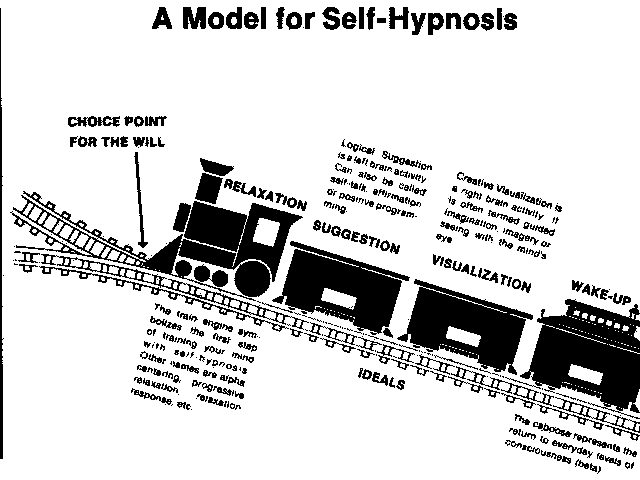by H. Leo Bolduc
1. Become a self-starter. One of the most important qualities for a successful career, as well as the secret to a successful life, is self-initiative with self-reliance. The desire and the courage to develop your own projects and the ability to follow through with your own work are essential to any field.
2. Study your strengths. Reveiw your past accomplishments and project your future goals. Evaluate your present status and situation. Articulate your discoveries and record them on paper. Identify your many resources and have the list readily avaliable. Build upon that which has proven successufl for you in the past. Use your strengths and accomplishments to expand to new levels.
3. Envision five years into the future. Keep a calendar. A popular one is a "Month-At-A-Glance" for five years into the future. For anyone to be successful, a calendar for five years is a necessity. You can use your calendar to list goals and to project a timetable for their accomplishment. In this way, you can keep track of which goals you have realized and the accuracy of your time frame.
If you prefer to do scheduling and goal-tracking on your computer, be sure to printout a hard copy. A calendar that you see daily is a forceful reminder of your vision and a timetable for its accomplishment. Sometimes goals are reached ahead of schedule, or other priorities often change your focus. Be prepared to make appropriate adjustments.
4. Research the past. Your calendar will be a valuable aid to study the past. If your work involves seeing clients or patients, for example, you can study the appointment patterns. You may detect which months are peak times and which are quiet months. Such an analysis can help you to determine long-range patterns. You'll learn to maximize the active months and optimize the quiet cycles.
5. Focus on fulfillment. How can you improve what you already do? What would be realistic ways to reach new heights? For example, if your education is in therapy, you probably do not have many media skills. You might hire a professional marketing person or a media specialist.
Let us utilize a holistic approach to thinking. Learn to think with your right brain and then act with your left. Classes in guided meditation or self-hypnosis will teach you to use the right hemisphere of your brain for creative, holistic thinking, and the left hemisphere for logical, practical application.
6. Create synergy. When two or more people work together on a specific plan or vision, the skills and potential of the team are greater than the sum of the persons working individually. In other words, the results are multiplied by working together. This is certainly a good reason to share your aspirations with trusted colleagues or like-minded individuals. Working and growing together, you can pool resources, broaden perspectives, and share experiences.
Goals are like magnets - they attract helpers! Your group could work together on various projects.
7. Design your destiny. It's good to be continually improving your work, but it's vital to be constantly improving your life. Develop life skills, emotional intelligence, and social skills. Most of all, develop both your conscious and subconscious mind. Your mind is your most valuable resource. Use your mind to invent your future!
Decide what you really want to do with your life - and evaluate why you want to do it. Then, put your ideals into action and your prayers into production!
8. Follow a professional development plan. Regularly attending conventions and professional seminars for continuing education in your field is time and money well invested. Such educational programs can be tax deductible, and the career benefits are extraordinary! You will have the opportunity to learn from other speakers, plus you can share what you have learned from your experiences.
9. Pursue holistic living. In order to do things well, your work and your life must be fun and creative. It's easier to do things well if you like what you are doing. Bring balances to all aspects of your life - mental, physical, spiritual emotional, and financial.
Do whatever is appropriate for you to life happily, healthfully, and holistically. Read inspirational books, take adventuresome bacations, explore the lands of your heart's memories, share with friends and loved ones. Get a therapuetic massage for your body, and do something passionate for your emotinal well-being. Enrich your soul! Only you know what is appropriate for you. Reward yourself with healthy living!
10. Demonstrate your gratitude. By doing the best that you can do and being the best that you can be, you will leave gifts for the future. If you enjoy your profession, you will want it to thrive and grow even after you have retired.
Your predecessors left many valuable tools, techniques, and guidelines from their experiences. You gained greatly from those gifts. Now, what can you do that will help the coming generations? What can you give to those who will follow in your footsteps? What is the greatest legacy that you can give to the future?
